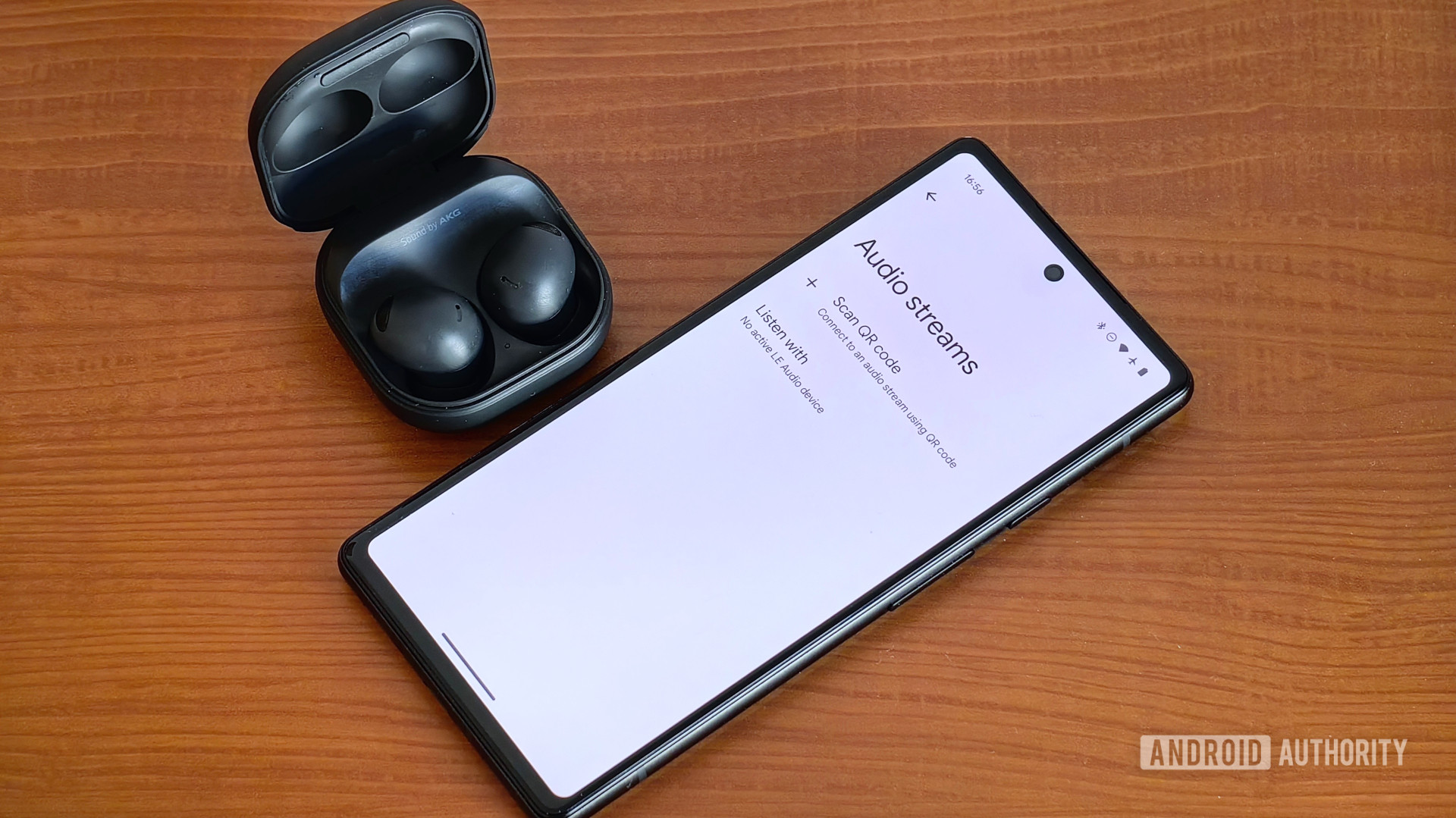Affiliate links on Android Authority may earn us a commission. Learn more.
Android 15 prepares to let you share media audio to nearby devices

- Auracast is a feature of the Bluetooth LE Audio standard that enables broadcasting audio to nearby devices.
- Android added basic support for Bluetooth LE Audio in Android 13, including support for starting and connecting to audio streams.
- Android 15 could get a dedicated page for audio sharing, signaling that Auracast could be a key feature of the new OS.
Imagine you’re traveling with a group of friends, and you want to listen to some music together. Unless the app you’re using has a built-in social listening feature like Spotify, there’s no easy way to share the audio you’re listening to with everyone else in your group. That’s a problem that Auracast, a feature of the Bluetooth LE Audio standard, tries to solve. Auracast enables broadcasting audio to nearby devices using Bluetooth Low Energy without the hassle of pairing. However, the broadcaster and receiver devices must support Auracast for this feature to work.
Although Auracast was announced over a year and a half ago, there still aren’t many headsets on the market that support it. That could change in 2024, though, as many accessory makers are going to release new products that support Auracast now that most smartphones that are being released also support it. To prepare for these new devices, Google is preparing to add a dedicated “audio sharing” page in Android 15 that lets users share or connect to nearby LE Audio streams.
While digging through the Android 14 QPR2 Beta 3 release, I discovered numerous strings within the Settings app related to audio sharing. These strings describe a page that contains a “switch” (i.e., a toggle) to share audio, a button to scan a QR code to connect to a nearby audio stream, a button to change which Bluetooth device to listen with, and a section that lists nearby audio streams.
<string name="audio_sharing_switch_title">Share audio</string>
<string name="audio_sharing_title">Audio sharing</string>
<string name="audio_streams_category_title">Connect to a LE audio stream</string>
<string name="audio_streams_empty">No nearby audio streams were found.</string>
<string name="audio_streams_pref_title">Nearby audio streams</string>
<string name="audio_streams_qr_code_summary">Connect to an audio stream using QR code</string>
<string name="audio_streams_title">Audio streams</string>This new audio streams page will appear under Settings > Connected devices > Connection preferences. With a bit of effort, I was able to manually launch the page to show what it’ll look like. However, I don’t have a device capable of starting an Auracast broadcast, so I wasn’t actually able to start or connect to a nearby audio stream.
Google has been working on integrating Bluetooth LE Audio into Android since Android 13, and it’s already possible to start and connect to nearby LE Audio broadcasts through a button in Android’s media output switcher. What’s noteworthy about this change in Android 15, then, is that Google is putting this feature front and center in Settings. This signals that Google is preparing to make Auracast support a key feature of Android 15, much like how LE Audio support was marketed as a key feature of Android 13.
While Google has yet to release a pair of earbuds that support LE Audio, all of its Tensor-powered devices support version 5.2 of the Bluetooth Core Specification, which is the first version of the Bluetooth specification that supports LE Audio. That means that if Google were to release a new pair of LE Audio-touting Pixel Buds this year, then most of its existing Pixel phone lineup would be able to take advantage of LE Audio’s benefits. We don’t know if Google actually plans to unveil a new pair of Pixel Buds this year, though, so we can only speculate about why this feature is being added now.